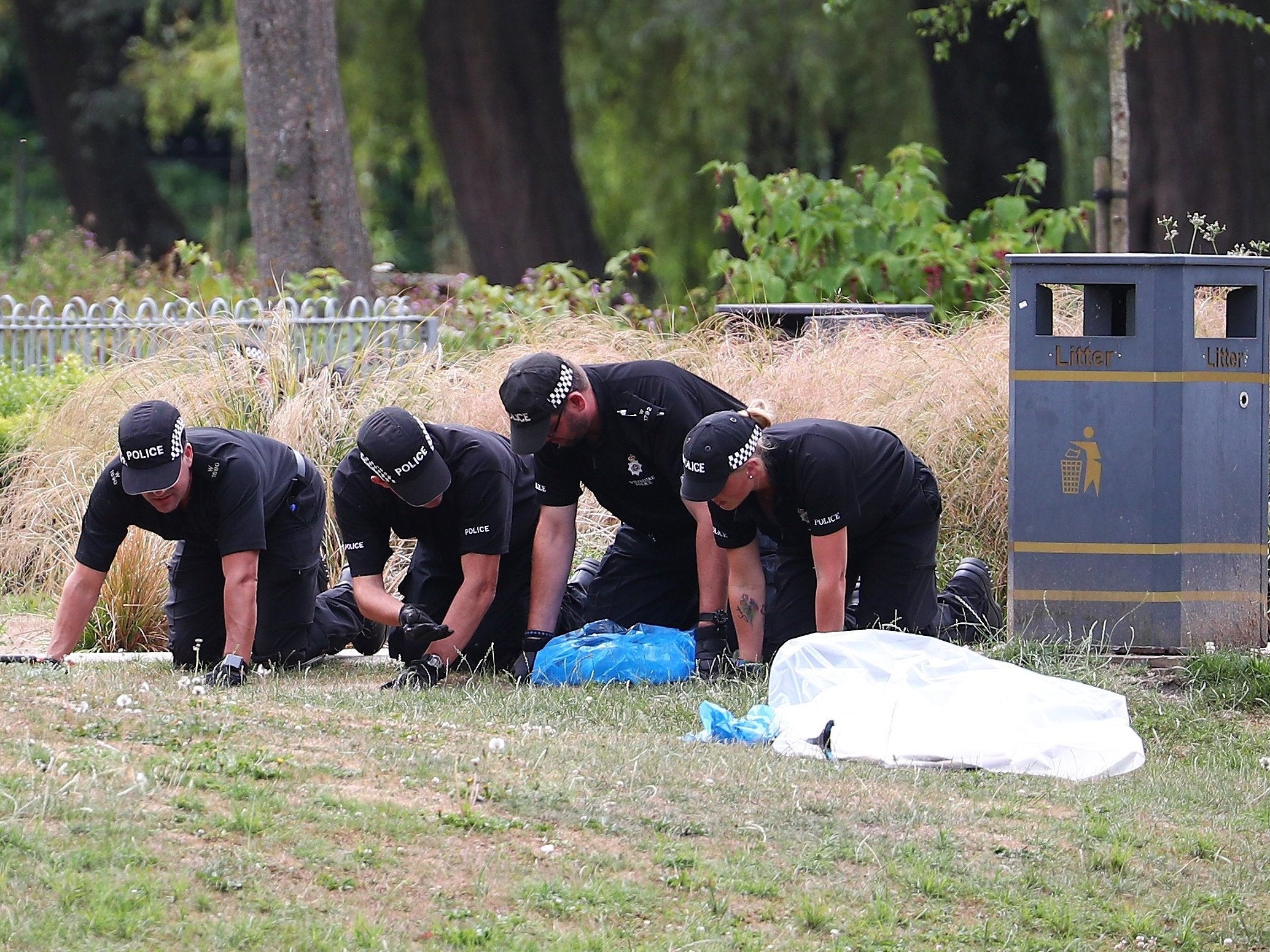Salisbury poisoning: Woman among Russian hit squad of four identified as key suspects in Skripal novichok probe
CCTV footage shows two people carrying and administering the nerve agent and others providing backup
Your support helps us to tell the story
From reproductive rights to climate change to Big Tech, The Independent is on the ground when the story is developing. Whether it's investigating the financials of Elon Musk's pro-Trump PAC or producing our latest documentary, 'The A Word', which shines a light on the American women fighting for reproductive rights, we know how important it is to parse out the facts from the messaging.
At such a critical moment in US history, we need reporters on the ground. Your donation allows us to keep sending journalists to speak to both sides of the story.
The Independent is trusted by Americans across the entire political spectrum. And unlike many other quality news outlets, we choose not to lock Americans out of our reporting and analysis with paywalls. We believe quality journalism should be available to everyone, paid for by those who can afford it.
Your support makes all the difference.The investigation into the Salisbury novichok attack has moved significantly forward, with security agencies and the police increasingly confident they would be able to prove a Moscow connection, following identification of those who carried out the assassination attempt.
Investigators had narrowed down the suspects around 12 days ago to between two and four people, including a woman, from CCTV footage, with two carrying and administering the nerve agent, and others providing backup. Security agencies have also made progress, they claim, in cross-checking with people who came into the country before the poisoning of former MI6 agent Sergei Skripal and his daughter Yulia last March.
A bottle found at the home of Charlie Rowley, who along with his partner Dawn Sturgess, was poisoned by the nerve agent used in the Skripal attack at the end of last month, is said to have yielded forensic evidence which has also helped drive the investigation. Ms Sturgess subsequently died on 8 July: an inquest into her death was opened and adjourned today with police enquiries continuing. Mr Rowley remains severely ill. His brother, Matthew, has said that Ms Sturgess had sprayed from a discarded perfume bottle the couple had found onto her wrist.
However, despite the advances being made in the investigation, it is unlikely any arrests will take place in this country with those responsible for the attack almost certain to have left the UK after carrying it out. All of the suspects used false identities for travel, as would be expected.
One line being pursued in the inquiry is that the attack was carried out by current or former members of the GRU, the Russian military intelligence service, where Mr Skripal had served for 15 years before “turning”. The information he provided to his British MI6 handlers, and through them to the Americans, had led to a huge number of his former comrades in the West and elsewhere being exposed.
It is believed, however, that no evidence had been found so far to prove that the attack was ordered directly by senior figures in the Kremlin, or Vladimir Putin, the Russian president. It is not known whether those involved had decided to carry out the attack autonomously or in conjunction with others, including members of organised crime gangs with security connections.
There has been no official acknowledgement of the damage caused by Mr Skripal to Russian security by Moscow, London or Washington. But a Russian espionage analyst, Nikolai Luzan, held in a book about the Skripal case, A Devil’s Counterintelligence Dozen, that up to 300 intelligence officers were compromised.
The accusation, made by Theresa May and her ministers, most vocally by the then foreign secretary Boris Johnson, that the Skripals were the target of a state-sponsored assassination mission has been vehemently denied by Moscow.
The British government told Nato partners soon after the Salisbury attack that Yulia Skripal’s emails were hacked by Russian intelligence in 2013. It is believed that this may have been carried out by GRU and may have continued after that date. But the security agencies have refused to say whether they have any information on why the attack was carried out in March.
The Press Association news agency reported that “investigators believe they have identified the suspected perpetrators of the novichok attack through CCTV and have cross-checked this with records of people who entered the country around that time. They [the investigators] are sure they [the suspects] are Russian.”
The progress made on identification was also confirmed by American as well as British security sources earlier this week. US intelligence agencies have been closely involved in the Salisbury investigation from the start.
Separately, the GRU agency, now known as the Main Directorate of General Staff, is the focus of an investigation by Robert Mueller, the special counsel, into Russian interference in the US presidential election, which allegedly helped to get Donald Trump to the White House. Mr Mueller’s team indicted 12 serving GRU officers last week on charges of hacking into Democratic Party computers.

Downing Street officials had said Ms May would ask Mr Trump during the president’s visit to the UK to press the issue of the Salisbury attack with Mr Putin at his summit with the Russian president in Helsinki. US officials say they are unaware of Mr Trump raising the matter with Mr Putin.
Meanwhile a fingertip search began on Wednesday of Queen Elizabeth Gardens in Salisbury, visited by Ms Sturgess and Mr Rowley, shortly before they fell ill. Police say that searches there and elsewhere have led to the recovery of hundreds of items and analysing all of them could take months.
